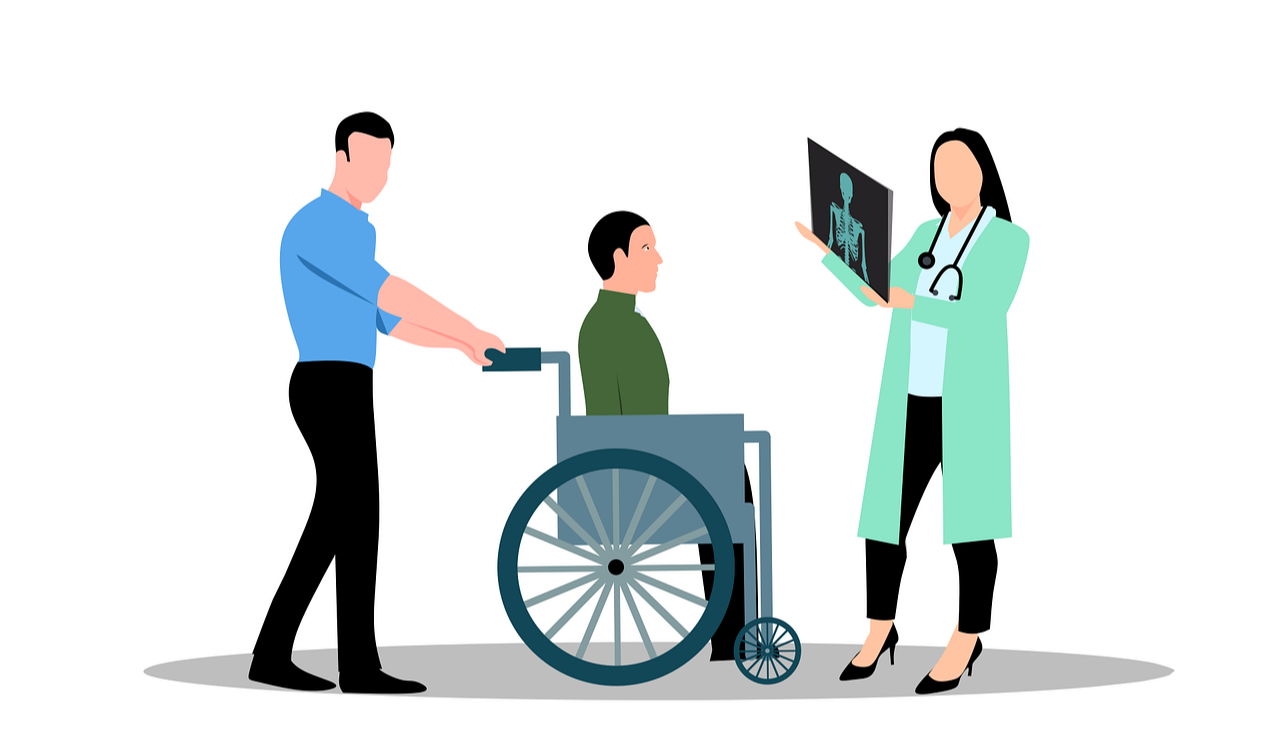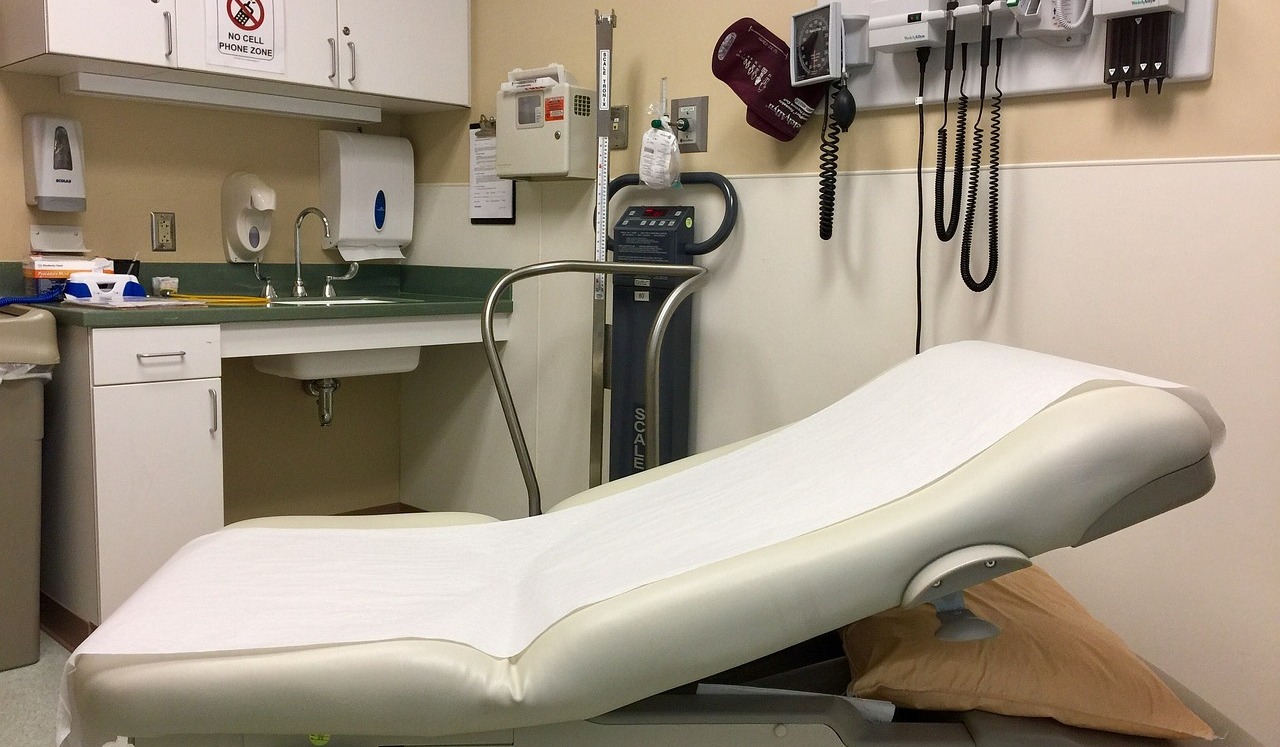This blog is a companion blog to "Doctor Visits for Neurodivergent Folks," wherein I discuss specific ways that neurodivergent people can best prepare for an effective visit with their doctors. Patients do have the ability to have the best possible visit with their doctor, but only so much. It's us, clinicians, who have a lot of the power. So let me share a few ways that you can ensure that you are part of the Neurodiversity Movement and provide neurodiversity-affirming care to meet the needs of your neurodivergent patients.
The Basics
It's important that I first explain what neurodiversity and neurodivergence are. To put it simply, neurodiversity is the wide variety that exists in neurological function, much like we understand biodiversity to be the wide variety of biological genus, species, and families to exist in the world. Much like we would not spend our appointment time attempting to wrestle a goldfish to behaving like a betta fish, we also would not want to expect folks with different neurotypes to behave the same ways. For more about neurodiversity, you can explore my other blogs and information available on other websites (with a simple google search) as well as scholarly literature.
Neurodivergent folks deviate from the neurological norms in some way, and as you might be beginning to think to yourself, this term covers a wide variety of people and specific neurotypes. You're probably already well aware of patients you have who are diagnosed with anxiety disorders, ADHD, depression, and more. And while knowing these disorders and the other neurodivergent neurotypes is important for some more obvious reasons (e.g., prescribing medication that will not interact poorly with other medicine and/or exacerbate comorbid conditions); this blog is an encouragement to take those ideas a bit further.
Being Neurodiverse-Affirming
A Neurodiversity-Affirming Office
Neurodivergent people tend to have more specific sensory needs than neurotypical folks do, as they can experience hyper- and hypo-sensitivity to sensory input. This can show up in a number of different ways, so being open to asking and discussing each patient's specific needs is important in ensuring you are meeting those needs as much as possible; however, there are some simple recommendations that tend to be beneficial for many folks.
- Consider the temperature of your office space. Most medical offices tend to be extremely cold. When possible, adjust the temperature in the office to be more mild, and provide warning to new patients and reminders to returning patients about the temperature, encouraging them to dress in a way that works for them for that environment. Some neurodivergent folks benefit from the explicit invitation to bring blankets when the environment allows such items. When medical necessity allows, encourage your patients to remain as covered as they prefer to be, even if that means taking additional time with them to work around clothing.
- Lighting in doctor's offices is typically focused on the needs of the doctor. When possible, avoid fluorescent lighting and instead use natural lights and/or warm lamps. When bright lights are needed, give warning to patients and encourage the use of things like sunglasses to block some of the light. Lighting is also one specific way to point out that the accommodations that tend to help neurodivergent folks also tend to work for neurotypical folks - who loves fluorescent lighting, anyway?!
- It is common for neurodivergent people to be hyper-sensitive to auditory stimuli, so consider the impact of your waiting area. If there are televisions and/or music playing over the speakers, it can be helpful to ensure the volume is turned down low or even turned off altogether. When this is not possible, explicitly mention to patients that they are more than welcome to bring noise-cancelling headphones. Training for the individuals responsible for intake will need to include neurodiversity-affirming ways (e.g., not touching someone to get their attention) of calling on patients in this case.
- Consider ways for neurodivergent people to make appointments and reach out with questions other than speaking with someone on the phone. Many neurodivergent people find speaking on the phone to be difficult and sometimes even impossible. Similarly, offering tele-health visits can be helpful when in-person visits are not a viable option for patients.
A Neurodiversity-Affirming Clinician
- Touch can be particularly triggering and activating for neurodivergent nervous systems. Talk through any touch-related procedures ahead of time, including where the touch will occur, to what intensity the touch will happen, for what duration the touch will exist, and the rationale for any touch that is necessary. Obtain explicit consent for all touch from clients. Even after talking through the procedures in great detail, continue to explain what is going to happen throughout the procedure as some neurodivergent people will struggle in remembering step-by-step procedures, even when talked through and/or experienced before.
- Physical exams, like gynecological exams, for example, can be overwhelming to a dysregulated nervous system and also for those with past trauma. Discuss with your patients the rationale for more invasive procedures and be willing to negotiate the frequency of these types of procedures and exams when best practice allows (e.g., conducting a pap smear every 18-months, 2-years, or even 3-years as opposed to yearly).
- The stress of a doctor's visit can be more intense for neurodivergent patients than neurotypical ones, which may be reflected by higher blood pressure, sweating, and even "situational muteness". Consider inviting the patient to write if that is easier for them than speaking, and also to bring a person with whom they feel comfortable enough to communicate on their behalf.
- Explicitly explain to neurodivergent patients the ways they can ask questions between visits, especially as some patients may experience heightened stress and anxiety during the visit and forget important questions they intended to ask. If using something such as a portal through which patients can reach out to doctors and/or nurses, it can be helpful to discuss the use of the portal. It is not uncommon for neurodivergent folks to have a history leading them to feel as if they and/or their needs are a burden to others, so talking specifically about how their medical questions to you are not a burden can alleviate some of these concerns.
- Eye contact can be difficult for some neurodivergent people. Please do not insist on eye contact or attribute lack of eye contact to anything other than their neurotype (e.g., abuse, anxiety, etc.).
- When it would be helpful, provide appropriate medical support for difficult sensory experiences. If numbing cream is available for any injections and/or blood draws, for example, offer them to neurodivergent patients even when they don't request them first. Offer anxiety and/or pain medication when medically appropriate, even when most patients wouldn't require it. It's common for neurodivergent people to experience higher levels of pain than neurotypical people and it's also more common for neurodivergent folks to have experiences wherein they were not believed or even dismissed entirely when reporting their pain levels. Additionally, there is some evidence to show that some neurodivergent people have difficulty in describing felt pain in addition to also differing in their expressions of pain (i.e., facial expression and body language differences from neurotypical pain expression).
- Autistic folks often take language literally. Use precise and clear language and take the extra time to ensure communication is effective.
- Some neurodivergent patients may prefer "yes" or "no" questions as opposed to more open-ended questions.
- If the patient is being sent home with detailed instructions, please provide these instructions in written/typed format as many neurodivergent people will struggle with remember verbal instructions. Consider providing them electronically, as well, as some neurodivergent folks will struggle with organization and may need access to several copies of the information.
Neurodiversity-Affirming Practice
It's also important to note that there is a large overlap between gender and sexual minority status with neurodivergent identity. Consider introducing yourself to your patients including your pronouns and asking them what pronouns they prefer, either verbally or at least on your intake paperwork.
You have an opportunity to gather the information about what your specific patients need by encouraging an environment of openness wherein they feel comfortable to share their needs and where their feedback is valued. Much like how it is a continual learning process to ensure you are an effective clinician for your patients, it also takes continued learning and adjusting to be an LGBTQAI+ and neurodiversity-affirming practice. At time it may be helpful to bring in consultants to help educate and to help ensure the office space is as neurodiversity-affirming as possible.
Keep your referral and consultation circles in mind for your neurodivergent and otherwise different patients. Reach out if you could use the help.

 Whitney Storey, MS, LPC, ASDCS
:
Dec 29, 2023 2:32:38 PM
Whitney Storey, MS, LPC, ASDCS
:
Dec 29, 2023 2:32:38 PM



